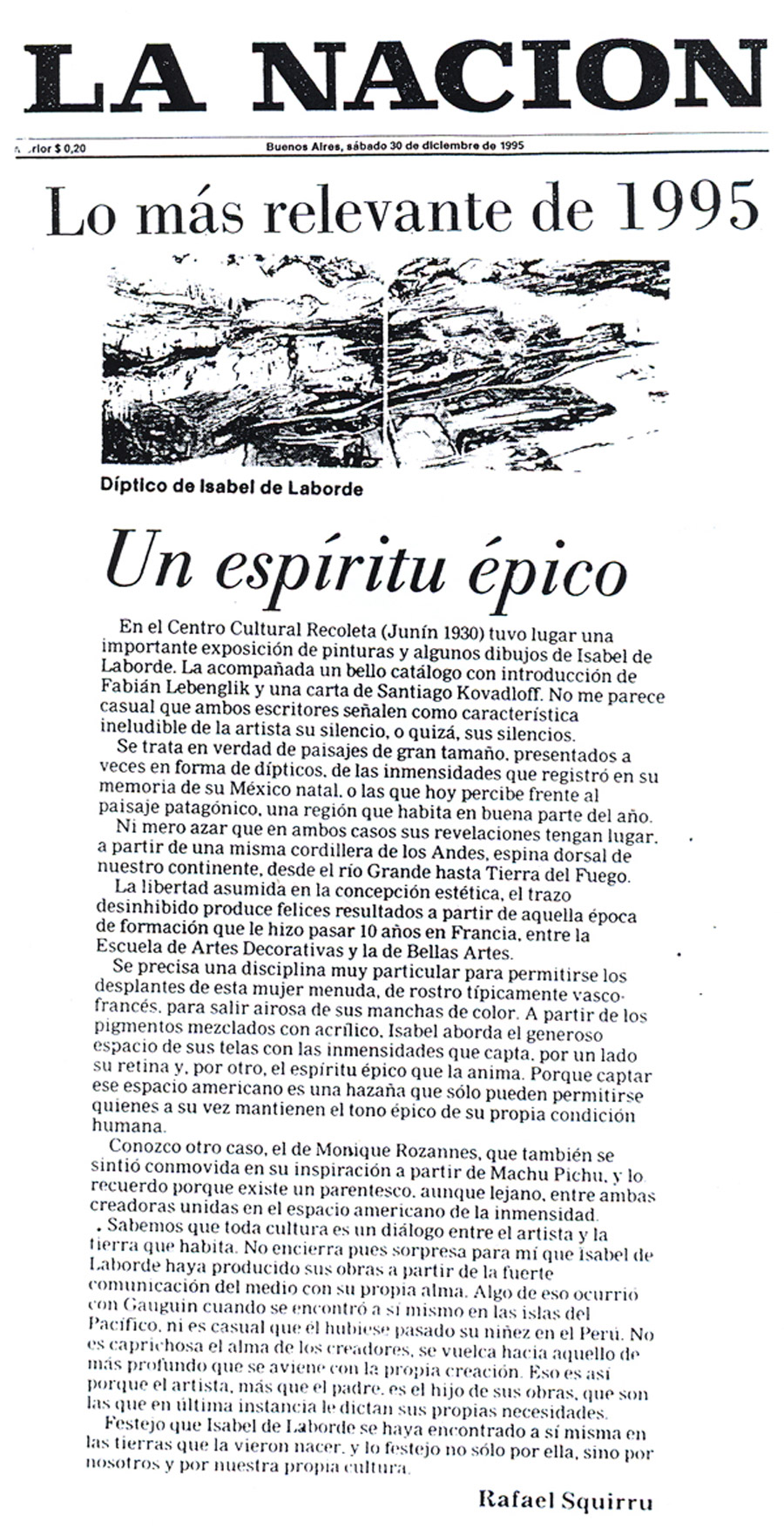La Nación, 'Un espíritu épico', December 1995
An epic spirit
An important exhibition of paintings and some drawings by Isabel de Laborde has taken place at the Centro Cultural Recoleta (Junín 1930). To go with it, we find a beautiful catalog with an introduction by Fabiàn Lebenglik, and a letter by Santiago Kovadloff. It does not seem to me a matter of chance that both writers point out as an avoidable distinction of the artist, her silence, or perhaps, her silences.
This show is about landscapes of great dimensions, introduced sometimes as diptics, of the immense extensions registered in her memory of her native Mexico, or the ones percieved now before the Patagonian landscape, a region she dwells in for a substantial part of the year. Neither it is by chance that in both cases her revelations take place as from the same Andean chain of mountains, the backbone of our continent, from the Rìo Grande to Tierra del Fuego.
The liberty of her aesthetic conception, her uninhibited hand produce valuable results as from those times of her learnings which made her stay in France for ten years , between the School of Decorative Arts and the Academy of Beaus Art.
Starting from pigments mixed with acrylics, Isabel addresses the generous space of her canvasses with the immensities, her eyes capture, on one hand, and on the other, the epic spirit behind her. Because to capture that American space is a feat that may be carried out by those who also maintain an epic tone with their own human condition.
I know of another case, the one of Monique Rozannes, who also was moved by Machu Pichu, and I remember because I think there is a kinship, though not close, between both artists united within the immensity of the American space. We know that every culture is a dialog between the artist and the land he or she inhabits. It is no surprise then, that Isabel de Laborde has produced her works through the strong communication of the environment with her own soul. Something of the sort happened to Gauguin when he found himself on the Pacific islands, nor is it by random that he should had spent her childhood in Perù. The soul of the artist is not a capricious one, for it follows that which falls in line with its own creation. This is so, because the artist, rather than the father or mother, is actually the son or daughter of his or her own works, which are the ones that dictate their own needs in the end.
It fills me with joy that Isabel de Laborde has found herself on the lands where she was born, and I celebrate it not only for her, but also for the rest of us, and for our own culture.
Rafael Squirru
